‘The “Neighbours in Research” Conference Has Become a Special Hallmark of HSE University in Perm’
The 10th anniversary scientific conference ‘Neighbours in Research’ was held at HSE University in Perm. This year it received the status of an international event—research was presented by scientists not only from different regions of Russia, but also from Uzbekistan and Kyrgyzstan. The conference's key concept is interdisciplinarity, and as a result, reports were presented from various branches of science, including economics, linguistics, sociology, law, digital technologies, and neuroscience.
The main objective of the ‘Neighbours in Research’ conference is to enable a large number of scientists to present the results of their work to colleagues from other branches of science, receive comments and questions, and explore new research topics.
Galina Volodina, Director of HSE University in Perm, delivered a welcome speech at the opening of the conference. She reminded the audience that ten years ago the conference began as an opportunity to unite scientists from the Perm campus, whereas this year more than 60 reports by researchers from different universities not only in Russia, but also from Central Asia, were being presented.
Sofya Kulikova, Head of the Centre for Cognitive Neuroscience, Senior Research Fellow at the Laboratory for Interdisciplinary Empirical Studies (LINES), gave a plenary report on how we make a purchase decision from the viewpoint of neurobiology. She explained which areas of the brain are responsible for product selection and which characteristics influence that decision. A new scientific division of the Perm campus, the Centre for Cognitive Neuroscience, has been open since February 1, 2023. This is a joint inter-campus project with the Institute for Cognitive Neuroscience of HSE University to study the neuroeconomic foundations of consumer behaviour.
The ‘Neighbours in Research’ conference also hosted a roundtable discussion ‘Towards Automatic Identification of Stroke Causes’. Projects on developing approaches to determine the aetiology of cryptogenic strokes in order to prevent cerebrovascular accidents were discussed at this. In order to implement this project, a new scientific and educational group ‘Digital Methods in Neurology’, headed by Sofya Kulikova, has been created at HSE University in Perm.
Another key speaker of the conference was Petr Parshakov, Head of the International Laboratory of Intangible-driven Economy at HSE University in Perm. He presented the results of a joint study with Yulia Naydenova, Igor Tylkin, and Gleb Vasilyev on the effects of pressure on performance. Using e-Sports data, the scientists came to the conclusion that stress/pressure has a negative effect on the result, but the negative effect online is reduced by fifty percent.
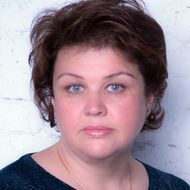
Elena Shadrina, Deputy Director for Science at HSE University in Perm
We maintain the idea of interdisciplinarity by bringing together researchers from different fields of science working on the same problem. In my opinion, this is what makes this conference interesting. I would like to thank all those colleagues and students who shared their research, listened, expressed their opinion, and asked questions.
A special joint section of HSE University in Perm and the Department of Modern History of the National University of Uzbekistan was devoted to the problems of migration and national relations. The past and present issues of migration in different regions of Russia, as well as Uzbekistan and Turkestan were discussed. The results of the joint project of HSE University in Perm and the Immanuel Kant Baltic Federal University ‘Migration as a Factor in Social Transformation of USSR Regions in the Period of post-War Reconstruction: Analysis by Means of Digital Humanities’ were also presented. This project was the winner of the inaugural competition held by HSE University’s Mirror Laboratories, headed by Sergei Kornienko, Professor of the Department of Humanities.
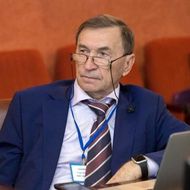
Sergei Kornienko, Professor of the Department of Humanities, HSE University in Perm
Holding this section has become one of the most important results achieved in the development of cooperation and interaction with the universities of Central Asia. We hope that, in the course of further cooperation with our colleagues from Uzbekistan, we will be able to continue working together in the field of studying migration and national processes, implementing joint research projects, and releasing joint publications.
Kamola Saipova, Professor at the National University of Uzbekistan named after Mirzo Ulugbek
The conference was held at a very high professional level. It is always very interesting, useful and enjoyable to take part in this type of event. This is our first event organised in cooperation with HSE University in Perm: ‘Neighbours in Research’.
Our joint section presented new approaches and conceptual modelling of the migration system, issues of migration diplomacy, the feminisation of migration, the modern image of migrants, etc. I can confidently say that the conference met our expectations.
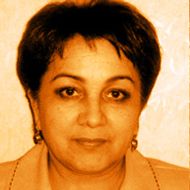
Dilaram Inoyatova, Professor at the National University of Uzbekistan named after Mirzo Ulugbek
I was particularly interested in the sections ‘Problems of Migration and National Relations: History and Modernity’, where I made a presentation on the migration of Russian Germans to Turkestan. I want to emphasise that the topics presented in this section are very relevant to the modern world, since in recent decades people have been migrating not only from country to country, but from continent to continent. As a result, due to various circumstances and unsuccessful adaptation, this can lead to inter-ethnic tension or even conflict, which makes it necessary to find ways to present this.. In this regard, the study of migration processes, examples demonstrating positive experience of adaptation to new conditions in different periods of history, and formation of diasporas can be useful for preventing conflict situations.
The conference sections discussed the topics of management and economic development, people in society, the use of digital technologies, new approaches to legal regulation, education, etc. Colleagues from various academic fields, including students, could exchange experiences, obtain feedback on their research, get inspiration and new ideas, and find like-minded people.
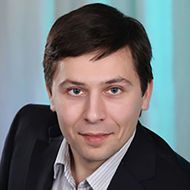
Leonid Mylnikov, Head of the Laboratory of Interdisciplinary Empirical Studies at HSE University in Perm
These reports make it possible to say that widespread penetration of technical means, information and digital technologies into the humanities has already occurred, which makes the need to involve technical specialists and scientists in the field of information technology more and more relevant and increases demand for the conference format.
Dmitry Kashin, Senior Lecturer at the School of Management, Head of HSE Perm International Office
This is my sixth time participating in the ‘Neighbours in Research’ conference at HSE University in Perm, and every time I discover a lot of new and interesting things when I listen to the reports of my colleagues at different sections. This year, I presented a joint study with Dmitry Koscheev on the topic ‘Inbound Tourism in Perm Region in an Era of Global Change: Overview of the Current Situation and Directions for Its Development’. I was also entrusted with moderating the international section with colleagues from the Republic of Kyrgyzstan—a rewarding and important experience. The section members, similarly to us on campus, are engaged in research in the field of public procurement. There was an interesting discussion about green procurement in this section, and my colleagues and I plan to discuss joint research on this topic.
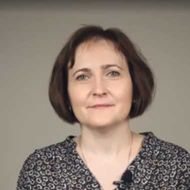
Elizaveta Smirnova, Associate Professor at the School of Foreign Languages, Academic Supervisor of the Foreign Languages and Intercultural Communication in Business programme at HSE University in Perm
The ‘Neighbours in Research’ conference has become a special hallmark of HSE University in Perm. From the very beginning, I took part in it as a speaker, and this anniversary year I was assigned the prestigious role of moderating the Language and Word section. The section presented reports on diverse areas of linguistics, ranging from the study of metaphor in pandemic discourse to investigating the verbs of instrumental semantics. Our colleagues shared the results of research carried out within the framework of cognitive linguistics, discourse theory, functional grammar, and sociolinguistics.
It is great that I was able to familiarise myself with such a wide range of works within one section, and as an Academic Director of an educational programme, I am especially pleased that linguistic students were present as listeners at the section. I think that the issues discussed by the speakers evoked keen interest not only among specialists, but also among the students who will have to choose topics for their term papers and graduation theses.
Lilia Panteleeva, Research Fellow at the School of Foreign Languages at HSE University in Perm
The ‘Neighbours in Research’ conference brings together not only specialists from different fields of knowledge, but also students and teachers. Both first-year students and graduates present their reports at the conference. It is always pleasant to see what young scholars are interested in, and the methods they use to develop their work.

